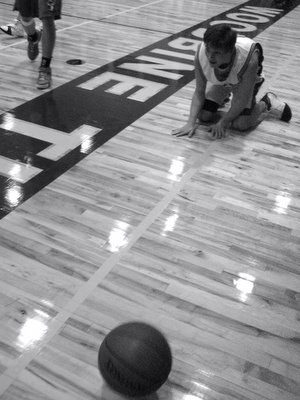
Yesterday a student of mine was checked into 30 day patient care for anorexia. There's been lots of talk about both anorexia and bulimia at our school this year. So, I'd like to pass along the following information and links:
International Eating Disorder Referral Organization
Ten Things Every Dad Should Know about eating disorders
- Our body size is a given, like our height or hair color. Yet, by middle school, 30-50 percent of American girls say they feel too fat and 20-40 percent are dieting; many beginning before age 10. By high school, 40-60 percent of girls feel overweight and try to lose weight.
- Young girls say that they are more afraid of becoming fat than they are of cancer, nuclear war, or losing their parents.
- Today, the average fashion model weighs 23 percent less than the average woman.
- The average age for onset of eating disorders is during adolescence. While self-esteem for both girls and boys is strong as children and drops for both in adolescence, the drop is much steeper for girls, beginning at around age of 12.
- In a survey of working-class 5th to 12th grade suburban girls, 69 percent reported that magazine pictures influence their idea of the perfect body shape; 47 percent reported wanting to lose weight because of magazine pictures.
- Before puberty there is no difference in depression rates between boys and girls. By age 15, girls are twice as likely to be depressed and 10 times as likely to develop an eating disorder than their male peers. Girls are more likely to attempt suicide than boys are, but boys are more likely to succeed.
- Clinique Laboratories, Inc. surveyed 500 moms of teen daughters and found their number one New Year’s Resolutions was "lose weight/eat less". Yet 22% of these same mothers list the fear of their daughter developing an eating disorder among their top concerns. Only 16 percent of the 500 teens in the same survey worried about developing an eating disorder.
- Anecdotal evidence suggests that comments by male family members trigger dieting, and teasing is associated with weight-control attempts in adolescence.
- According to data presented to the National Institutes of Health, 33-40 percent of adult women are trying to lose weight at any given time –fueled by a cultural perception of a feminine "ideal" that is much too thin for good health.
- Girls with active and hardworking dads are more ambitious, more successful in school, attend college more frequently, and are more likely to attain careers of their own. They are less dependent, more self-protective, and less likely to date or marry abusive partners.
Sources: Dads and Daughters, 1999. Michael Levine, Prevention of Eating Problems with Elementary Children, USA Today, July 98, Special K report, Business Wire, 1998, Jo Sullivan-Lyons, The Psychologist, American Academy of Advertising, Pediatrics, March 99, American Psychological Assn. congressional briefing.








































 follow Coach on facebook
follow Coach on facebook